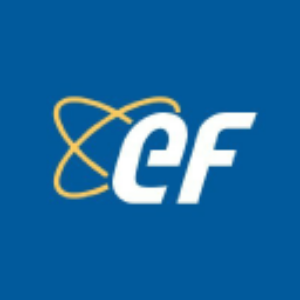Energy Fuels and Astron Corporation Limited Execute Definitive Agreements to Jointly Develop the Donald Rare Earth and Mineral Sands Project in Australia; Uranium Production from the Company';s U.S. mines and Alternate Feed Materials Continues to Ramp up as Planned
Rhea-AI Summary
Energy Fuels and Astron have executed agreements to develop the Donald Rare Earth and Mineral Sands Project in Australia. The project aims to produce 7,000-14,000 tonnes of monazite sand per year, starting in 2026, for processing at Energy Fuels' White Mesa Mill in Utah. Energy Fuels will invest AUD$183 million and issue $17.5 million in shares to earn up to a 49% stake in the project. Initial investments of $3.5 million in shares and $10.6 million in capital will be made in 2024. The Mill's REE oxide separation circuit will process the monazite sand without further capital expenditure. Expansion plans aim to increase processing capacity to 40,000-60,000 tonnes per year by 2027. Energy Fuels expects to ramp up uranium production from its U.S. mines, reaching 1.1-1.4 million pounds of U3O8 per year by the end of 2024 and potentially 2 million pounds by 2025. The project's success depends on securing offtake agreements and non-recourse financing.
Positive
- Joint venture targets production of 7,000-14,000 tonnes of monazite sand annually starting in 2026.
- Energy Fuels to invest AUD$183 million and issue $17.5 million in shares to earn up to 49% stake.
- Initial capital investment of $10.6 million and issuance of $3.5 million in shares in 2024.
- White Mesa Mill's REE oxide separation circuit will process monazite sand without further capital expenditure.
- Expansion to increase REE processing capacity to 40,000-60,000 tonnes per year by 2027.
- Energy Fuels expects to ramp up uranium production to 1.1-1.4 million pounds of U3O8 per year by end of 2024 and potentially 2 million pounds by 2025.
- Donald Project expected to provide a long-term, large-scale supply of REE concentrate.
- The project will also produce ilmenite and zircon, adding to its profitability.
- Energy Fuels' REE initiatives will not diminish its U.S. uranium production capabilities.
Negative
- Final investment decision (FID) depends on securing satisfactory offtake agreements and non-recourse debt financing.
- Initial investment of $10.6 million and issuance of $3.5 million in shares could be risky without guaranteed returns.
- Requirement to invest AUD$183 million is a significant financial commitment.
- Potential delays in the completion of REE oxide separation circuit and expanded capacity at the Mill.
- Dependence on favorable market conditions to ramp up uranium production to 2 million pounds by 2025.
- Requirement for $431 million in additional capital by 2029 or 2030 for Donald - Phase 2.
- Risk of being a minority stakeholder if FID is not made unanimously within three years.
News Market Reaction
On the day this news was published, UUUU declined 6.74%, reflecting a notable negative market reaction.
Data tracked by StockTitan Argus on the day of publication.
- The Donald Project is an advanced-stage project with the potential to supply approximately 7,000 – 14,000 tonnes of monazite sand in a rare earth element ("REE") concentrate ("REEC") per year to Energy Fuels' White Mesa Mill (the "Mill"), located in
Utah, U.S.A. , for processing into separated REE oxides, as early as 2026. - Under the joint venture, Energy Fuels has the right to invest AUD
$183 million (approximately$122 million $17.5 million 49% interest in the project. - Of these amounts, Energy Fuels expects to issue
$3.5 million $10.6 million $225 million - The REEC production of approximately 7,000 to 8,000 tonnes per year from the first phase of the Donald Project would be processed at the Mill's recently constructed REE oxide separation circuit, which is expected to be fully commissioned by the end of Q2 2024 and has the capacity to process up to 10,000 tonnes of monazite sand per year into up to 1,000 tonnes of NdPr oxide per year, along with a heavy mixed REE carbonate, without the need for any further capital expenditures at the Mill.
- During 2024 and 2025, the Company also plans to continue to design, permit, and construct an expansion of REE oxide production capacity at the Mill to 40,000 – 60,000 tonnes of monazite per year, which is expected to be completed in 2027, and would have the capacity to process the second phase of monazite production from the Donald Project of 13,000 to 14,000 tonnes of REEC per year, which could be available as early as 2029/2030, as well as planned monazite production from the Company's Bahia Project in
Brazil and the Company's planned acquisition of the Toliara Project inMadagascar . - The Company's REE production initiatives will not diminish in any way the Company's
U.S. leading uranium production capabilities, which are proceeding as planned. The Company expects to produce approximately 150,000 to 500,000 pounds of uranium oxide ("U3O8") in 2024 from itsU.S. mines and alternate feed materials ramping up to mining at a run-rate of approximately 1.1 million to 1.4 million pounds of U3O8 per year later this year from three of its existing mines, with plans to increase mining to the rate of approximately 2 million pounds of U3O8 per year by 2025 and up to 5 million pounds per year in coming years if market conditions continue to be positive, as expected.
The Donald Project is a world-class, world scale, REE and heavy mineral sand ("HMS") deposit that has the potential to provide Energy Fuels with a near-term, low-cost, and large-scale source of monazite sand in an REE concentrate ("REEC") that would be transported to the Company's Mill in
With most licenses and permits in place (or at an advanced stage of completion), the Donald Project is expected to provide Energy Fuels with approximately 7,000 to 8,000 metric tons ("tonnes") of REEC per year ("Donald – Phase 1"), commencing as early as 2026. 8,000 tonnes of REEC from the Donald Project would contain approximately 4,700 tonnes of total REE oxides ("TREO"), including roughly 990 tonnes of neodymium-praseodymium ("NdPr") oxide, 84 tonnes of dysprosium ("Dy") oxide, and 14 tonnes of terbium oxide("Tb").
Following the construction and commissioning of Donald – Phase 1, Energy Fuels and Astron will evaluate increasing production from the Donald Project to 13,000 to 14,000 tonnes of REEC per year ("Donald – Phase 2"), all of which would be delivered to the Mill for processing into REE oxides by Energy Fuels. 14,000 tonnes of REEC from the Donald Project would contain up to 8,200 tonnes of TREO per year, including 1,700 tonnes of NdPr oxide, 140 tonnes of Dy oxide and 25 tonnes of Tb oxide, providing a rich source of critical rare earth elements necessary to meet the demand for electric vehicles, clean energy and national security technologies.
NdPr, Dy, and Tb are known as the "magnet rare earths," as they are key ingredients in powerful permanent REE magnets used in the most efficient electric vehicles ("EVs"), hybrids, wind generators, and other defense-related and advanced technologies. Monazite concentrates typically have superior grades and distributions of the "magnet" REEs compared to other REE-bearing minerals.
For context, REEs provide significantly greater power and range for EVs and hybrid vehicles, with the typical REE-powered vehicle using about one kilogram ("kg") of NdPr oxide, along with roughly 50 grams of Dy and/or Tb oxide. Therefore, the Donald Project alone could supply enough of each of these critical elements for up to 1.7 million EVs per year during Donald – Phase 2.
Construction and development of the Donald Project could begin as soon as 2025, subject to a unanimous final investment decision ("FID") of both Energy Fuels and Astron. A positive FID would generally require Energy Fuels to have secured commitments for satisfactory offtake and/or sales agreements for the REE oxides expected to be produced from REEC at the Mill, Astron having secured commitments for satisfactory offtake and/or sales agreements for ilmenite and zircon expected to be produced from heavy mineral sand concentrates ("HMC") from the project, and the Venture having secured commitments for non-recourse and/or government-backed debt financing for the project. Energy Fuels expects to spend approximately
THE DONALD PROJECT
The Donald Project is a world-class, advanced-stage, large-scale critical mineral deposit underpinned by the Ilmenite, zircon and monazite-rich Donald deposit in the Wimmera region of
On June 27, 2023, Astron released the outcomes of its Phase 2 Pre-Feasibility study (the "2023 PFS"), which expands upon its April 26, 2023 Definitive Feasibility Study (the "2023 DFS") (see Note 1) for the Donald Project. This combined, updated study estimates Donald – Phase 1 and 2 production of 200,000 – 500,000 tonnes per year HMC and 7,000 – 14,000 tonnes per year of REEC, and forecasts total funding expenditures of AUD
The Donald Project is expected to provide a long-term and large-scale supply of REEC to the Mill for processing into REE oxides and other advanced REE materials. As the REEC will be a byproduct of the Donald Project's ilmenite and zircon production, the total cost of production of REE oxides at the Mill is expected to be low-cost and globally competitive.
THE DONALD PROJECT JOINT VENTURE
Under the Venture, Energy Fuels has the right to invest AUD
If a positive FID is made by the Venturers within three years from the Commencement Date, then Energy Fuels will proceed to expend the remaining balance of its AUD
If a positive FID is made, Energy Fuels' investment of AUD
Astron is the Manager and Operator of the Venture, with specified major decisions subject to approval of both parties. After Energy Fuels has completed its investment of AUD
Under the Venture, Energy Fuels has entered into an offtake agreement for
As soon as practicable after commencing Donald – Phase 1 commercial production, the Venture would expect to evaluate constructing Donald – Phase 2 which would be expected to double ore production to 15 million tonnes per year to produce approximately 400,000 to 500,000 tonnes per year of HMC and approximately 13,000 to 14,000 tonnes per year of REEC, providing a consistent and significant feed for decades to come. Capital expenditures for Donald – Phase 2 would be made pro-rata by the Joint Venturers in accordance with their percentage interests in the Venture. The FID for Donald – Phase 2 would be made by the agreement of both Joint Venturers.
The Venture agreements also grant Energy Fuels a first right of refusal over participation in the development of Astron's Jackson Deposit, which is contained in the tenement RL2003 and adjoins the Donald Deposit to the south-west, should Astron plan to pursue such development with a third party.
REE SEPARATION AT THE WHITE
Energy Fuels is rapidly creating a significant new REE supply chain of world significance that can reduce America's reliance on REE's from
Further, Energy Fuels has demonstrated its ability to process monazite at its
Energy Fuels completed construction of its Phase 1 REE Separation Circuit at the Mill in Q1-2024 for a total cost of approximately
The Company is also in the process of designing its Phase 2 REE Separation and Phase 3 REE Separation Circuits at the Mill. The Phase 2 REE Separation Circuit, which is currently expected to be completed in 2027, subject to receipt of any required regulatory approvals and the Company securing sufficient supplies of monazite sands, will consist of expanding NdPr oxide capacity to process 40,000 to 60,000 tonnes of monazite sands per year and produce approximately 4,000 to 6,000 tonnes of NdPr oxide per year. The Company also plans to construct a dedicated "crack-and-leach" circuit in conjunction with its Phase 2 Separation Circuit, in order to allow the Mill to simultaneously process conventional uranium ore and monazite sands independently, thereby allowing for more efficient utilization of Mill capacity. The Phase 3 REE Separation Circuit, which is currently expected to be completed in 2028, subject to receipt of any required regulatory approvals, will consist of installing the capacity to produce "heavy" REE oxides, including Dy, Tb, and potentially other oxides.
The Phase 2 REE Separation Circuit is expected to be completed in time to process the expected Donald – Phase 2 production of approximately 13,000 to 14,000 tonnes of REEC per year, which could be available by as early as 2029/2030 depending on market conditions, final design and permitting. The Phase 2 REE Separation Circuit would also accommodate monazite production from the Company's Bahia Project in
The Sm+ mixed heavy REE carbonate will either be sold in the international market as a mixed Sm+ REE carbonate or stockpiled at the Mill for processing into Dy and Tb oxides and potentially other heavy REE oxides once the Phase 3 REE Separation Circuit is fully commissioned.
The Company also continues to evaluate opportunities to enter the REE metal, alloy, and magnet-making space, in order to fully-integrate the entire REE magnet supply chain.
ENERGY FUELS' CONTINUED URANIUM PRODUCTION RAMP-UP:
Once the Phase 1 REE Separation Circuit commissioning is complete, which is expected by the end of Q2, 2024, the Company expects to begin processing stockpiled uranium ore from its three currently operating
The Company's REE initiatives will not diminish in any way the Company's
MARK S. CHALMERS, PRESIDENT AND CEO OF ENERGY FUELS STATED:
"Energy Fuels is truly excited to embark on this joint venture with Astron on the development and operation of the Donald Project in
"I'll add that the sequencing of our uranium, rare earth and mineral sand production ramp-ups is proceeding extremely well in relation to commodity markets, while maximizing operating capacity and workforce allocation at our White Mesa Mill. Uranium markets are currently gaining strength, and we have long-term supply contracts to fulfill, so 2024 is a good year to ramp-up our low-cost uranium production. At the same time, rare earth markets are currently soft. Therefore, 2024 is a good year to install and commission REE processing capacity, design and plan additional REE processing capacity, and secure mineral positions in this critical industry, such as through our Donald Project joint venture with Astron and proposed acquisition of Base Resources. Assuming heavy mineral sand markets remain strong, and we are able to secure satisfactory offtake agreements and financing, we look forward to beginning development of the Donald Project as soon as 2025. We believe the Donald Project will be a 'flagship' mining project for
Note 1
The financial information relating to the Donald deposit's mineral sands is based on the 2023 PFS and 2023 DFS. These studies constituted a "Pre-Feasibility Study" and a "Feasibility Study," respectively, for the purposes of the Australasian Code for Reporting of Exploration Results, Mineral Resources and Ore Reserves, 2012 Edition ("JORC") and the ore reserves underpinning these studies were estimated in accordance with JORC. The results from these studies and the estimated ore reserves may not be comparable to (as the case may be) data or estimates under either National Instrument 43-101 ("NI 43-101") or Subpart 1300 of Regulation S-K ("S-K 1300")– see disclosure below under "Qualified Person".
NOTE 2
The JORC estimate of ore reserves is presented for informational purposes only. A qualified person has not done sufficient work to classify these estimates as current NI 43-101 or S-K 1300 estimates of mineral resources, mineral reserves, or exploration results. Energy Fuels is not treating these estimates as a current estimate of mineral resources, mineral reserves, or exploration results – see note below under "Qualified Person".
QUALIFIED PERSON
The technical information in this press release has been prepared in accordance with both
https://www.astronlimited.com.au/wp-content/uploads/2023/06/20230627-Phase-2-Ore-Reserve-Update.pdf
ABOUT ENERGY FUELS
Energy Fuels is a leading US-based uranium and critical minerals company. The Company, as a leading producer of uranium in
ABOUT ASTRON
Astron Corporation Limited (ASX: ATR) is an Australian-based company listed on the ASX. With over 35 years of operating history, Astron has been involved in mineral sands processing, downstream product development, as well as the marketing and sales of zirconium and titanium related products. Astron's prime focus is on the development of its large, long-life Donald Rare Earths and Mineral Sands Project in regional
Cautionary Note Regarding Forward-Looking Statements: This news release contains certain "Forward Looking Information" and "Forward Looking Statements" within the meaning of applicable
Cautionary Note for U.S. Investors Concerning Mineral Resources and Reserves: Certain technical disclosure contained in this news release has been prepared in accordance with the JORC Code. The JORC Code differs from the requirements of the
![]() View original content to download multimedia:https://www.prnewswire.com/news-releases/energy-fuels-and-astron-corporation-limited-execute-definitive-agreements-to-jointly-develop-the-donald-rare-earth-and-mineral-sands-project-in-australia-uranium-production-from-the-companys-us-mines-and-alternate-feed-materia-302162578.html
View original content to download multimedia:https://www.prnewswire.com/news-releases/energy-fuels-and-astron-corporation-limited-execute-definitive-agreements-to-jointly-develop-the-donald-rare-earth-and-mineral-sands-project-in-australia-uranium-production-from-the-companys-us-mines-and-alternate-feed-materia-302162578.html
SOURCE Energy Fuels Inc.







